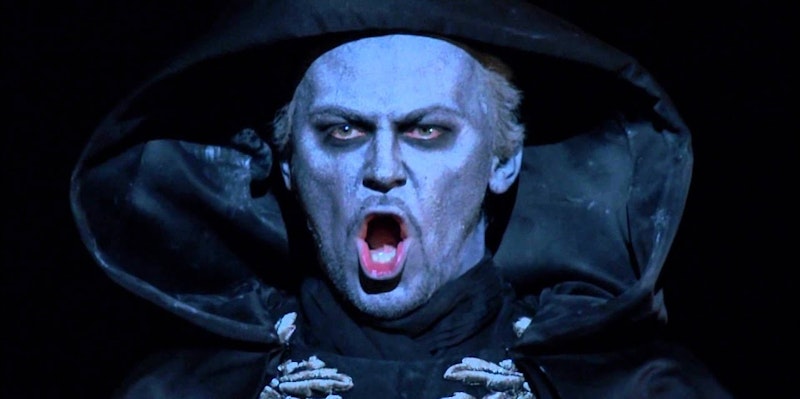There’s a passage in James Clavell’s great samurai novel Shogun where the aspiring military ruler Toronaga asks the astute interpreter Mariko what she thinks of Yabu, a chieftain who may join Toronaga’s side in the brewing civil war.
“Yabu-san’s a violent man with no scruples whatsoever,” says Mariko. “He honors nothing but his own interests. Duty, loyalty, tradition, mean nothing to him. His mind has flashes of great cunning, even brilliance. He’s equally dangerous as an ally or enemy.”
“All commendable virtues,” replies Toronaga. “What’s to be said against him?”
Toronaga’s willing to wager that Yabu will serve Toronaga’s purposes even while focusing on his own. It’s a dicey game. Yabu betrays Toronaga, who discovers the plot and orders Yabu to slit his own belly before noon. Yabu argues for his life to be spared so he can serve Toronaga’s cause through death in battle, but Toronaga refuses, saying he doesn’t trust Yabu. So, Yabu commits seppuku, after reciting his death poem:
What are clouds,
But an excuse for the sky?
What is life,
But an escape from death?
In the samurai culture of loyalty and decorum, even a reprobate such as Yabu strives for a moment of dignity at his downfall. That contrasts with our place and time, where an individual driven by rapacious self-interest can be expected to mouth incendiary rhetoric up to and through whatever legal or political doom may follow a lifetime of deception and criminality.
A Western cultural tradition may offer a moment of reckoning more congruent with present-day sensibilities. Mozart’s classic opera Don Giovanni tells the story of a licentious nobleman who has lived a life of grotesque debauchery while leaving it to underlings to cover his tracks. As Act 1 opens, Leporello, the libertine’s servant and fixer, keeps watch outside the house of the Commendatore, a high-ranking officer, while a masked Don Giovanni seeks to seduce or rape Donna Anna, the officer’s daughter. The Commendatore shows up, and Don Giovanni kills him.
In Act 2, after Don Giovanni continues his unscrupulous amorous pursuits, he comes to a graveyard where there’s a statue of the Commendatore. The stone figure comes to life, terrifying Leporello, but Don Giovanni is disdainful of its demands for repentance. Instead, he exudes the confidence of a man who’s escaped accountability for decades, and mockingly invites the statue to dinner. He’s surprised by its cold, stony grip, and feels chills as demons swirl around him with prosecutorial zeal. He’s dragged to hell.
There’s a final ensemble that sings about how such is the fate of evildoers. However, Mozart penned slightly different versions, and the finale sometimes has been omitted. An NPR article laments that the “final ensemble leaves us feeling that somehow, with Don Giovanni gone, the world isn’t quite as interesting as it used to be.” Perhaps this reflects media preoccupation with audience share and ratings. Some productions have tweaked the ending so that the Don avoids punishment or continues seductions in the afterlife. The curtain may fall, but the charismatic villain will always have his enthusiasts.
—Kenneth Silber is author of In DeWitt’s Footsteps: Seeing History on the Erie Canal and posts at Post.News.

